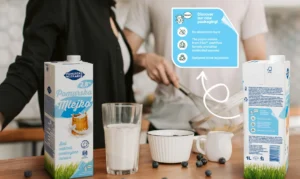Wednesday, 18 February 2026
Supplements market offering multiple options of Vit D
While food-fortification, at mass-level and at one’s home, is a longer-term method in achieving the desired level of vitamins in the blood, supplements are a more sustained approach that can…

While food-fortification, at mass-level and at one’s home, is a longer-term method in achieving the desired level of vitamins in the blood, supplements are a more sustained approach that can be derived from one’s everyday food.
Body Vitamin D is a fat-soluble vitamin and 90 per cent of the requirement can be synthesized by skin, under sufficient sun exposure – the reason it is called the sunshine vitamin. Thus, some argue that to maintain the optimum level of Vitamin D in blood, one doesn’t need supplements but sunshine found in bounty in tropical countries. But for reasons like sunscreen, increased indoor lifestyle (more so in a pandemic world), clothing choices, and even air pollution deter a natural skin-synthesis process for Vitamin D.
Dietary choices can also add to the woe as rich sources of Vitamin D are mainly sea foods, meats, milk and dairy products. But a recent scientific study from the Netherlands showed that ‘baseline diet provided only about one-fifth of the adequate intake of vitamin D from natural food sources and voluntary vitamin D-fortified foods’ within the limits of daily caloric intake and carbon-footprint per capita. The study concluded that food fortification and other measures like supplements are essential to achieve sustainable vitamin D intake.
Supplement market in India
Supplements are a cost-effective and convenient way to plug the gaps in micronutrient deficiencies and thus often recommended to those with micronutrient deficiency and with an elevated requirement. For example, to bring back an optimum level of vitamins in patients or pregnant women, supplements are a go-to solution.
Since vitamin D supplements are easily available, resulting in chronic self-administration- greater awareness among consumers, pharmacists, physicians and regulatory authorities is critical to ensure appropriate use and to avoid excess intake. There are varied vitamin D supplements in the market, with vitamin D3 (cholecalciferol) and vitamin D2 (ergocalciferol) the two common forms and the latter being the vegetarian source of Vitamin D. Thus, supplements should be appropriately labeled to highlight the quantity of each ingredient along with specific warnings, precautions and instructions, as required.
While food-fortification, at mass-level and at one’s home, is a longer-term method in achieving the desired level of vitamins in the blood, this is a more sustained approach that can be derived from one’s everyday food. Supplements should not be treated as an alternative to a healthy and balanced diet.
Future trends
Considering the high levels of vitamin D deficiency, fortifying commonly available foods can prevent its insufficiency in India’s large populace. National-level programs could also be prioritised in offering regulated vitamin D-fortified foods that the masses find affordable. Association between Vitamin D deficiency and SARS-CoV-2 infection has been reported.
While evidence from intervention studies is still scarce and further research is required before any conclusion to be drawn, functions of Vitamin D to maintain health in many aspects have been widely established and acknowledged. Ireland has recently published a government report recommending universal Vitamin D intake for their citizens to reduce
the risk of respiratory and other illnesses such as osteoporosis. Closer home, in a post-pandemic world, campaigns like “BoostYourImmuniD” addressed towards the societal challenge of deficiency in Vitamin D are definitely the desired communiqué hitting right chords common people.
The COVID-19 pandemic has brought a lot of attention to the importance of micronutrients in building healthy immune functions. The rise in income levels and significant consumer demand for nutritional & healthy products are expected to provide promising prospects for the growth and diversification of the region’s functional food & beverage products.
Taichi Inui, APAC Regional Manager – Nutrition Science & Advocacy, DSM Nutritional Products, Japan
Technology
Carlsberg Launches AI-Crafted Lunar New Year Packaging
Feb 17, 2026 | Beverages
FAO Experts Assess Risk of Antimicrobial Resistance Spreading via Food Loss and Waste
Feb 17, 2026 | Sustainability
Food Testing
Redefining Trust in Organic Foods through Independent Testing
Feb 13, 2026 | Food Safety and Testing
AFNOR International Eyes Global Food Safety Growth with HACCP Group Takeover
Feb 04, 2026 | Australia
More Popular
Hormel Foods Announces Agreement to Sell Whole-Bird Turkey Business to Life-Science Innovations
Feb 18, 2026 | Company News
Kodiak Expands Frozen Lineup with No Sugar Added Homestyle Power Waffles
Feb 18, 2026 | Company News






